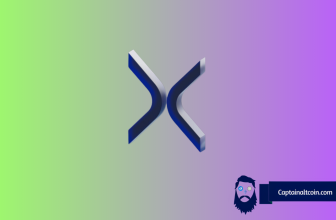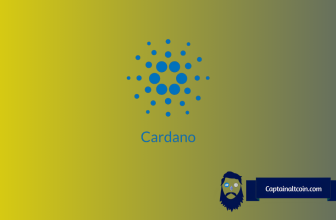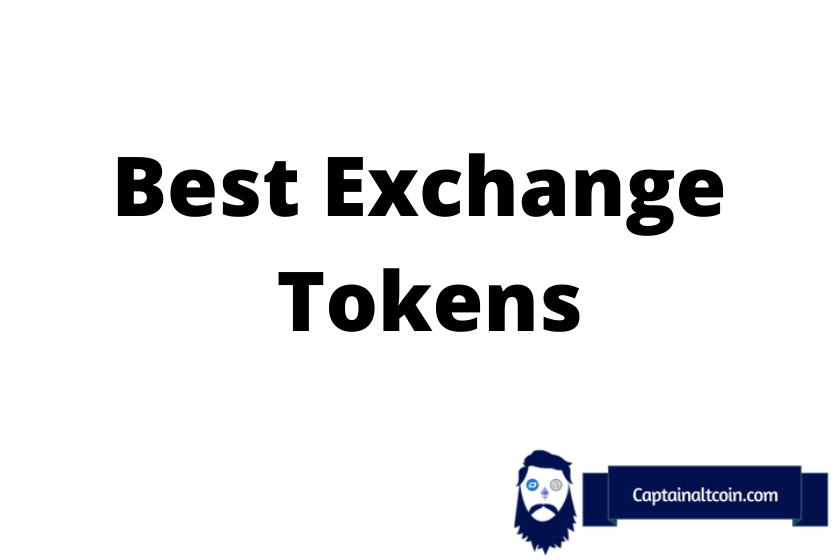
What you'll learn 👉
The Role and Tokenomics of Exchange Tokens
Back in the last crypto bull market of 2017, I noticed that Binance, one of the largest crypto exchanges, was offering discounts on trading fees if you paid them in Binance Coin. Sounds legit, I thought, so I bought 10 USDT worth of the new BNB token. It was a time when everyone and his dog were issuing an ICO, so I put it down to Binance jumping on the bandwagon. It turns out that there was more to it than I first realized.
Today, BinanceCoin (BNB) sits at around $280 and is the third-largest cryptocurrency in its own right, with a market cap of around $40 billion. Only Bitcoin and Ethereum are ahead in the race. A discount voucher for exchange fees has become bigger than the coins it was designed to trade. So what exactly is going on with exchange tokens?
BNB
Binance Coin was originally released as an ERC20 token on the Ethereum blockchain. The initial offering raised $15 million and at the time it was billed as a way to get a 50% discount off trading fees on the Binance exchange. There was another feature that converted small balances of your other coins to BNB. This was super useful as your transactions would often leave an untradable amount of coin in your wallet. Now you could collect all this detritus together, and turn it into something useful.
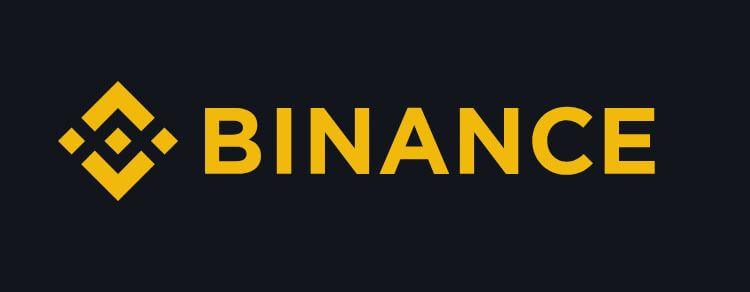
We all just assumed BNB would act as a stable coin – somewhere to keep your balance between trades. It felt safe because it was administered by the Binance exchange, and people needed to buy it to get the trading fee discounts. It also qualified you for various air-drops, voting rights, and other promotions. Once it started outperforming other tokens on the exchange, people started to view BNB as a legitimate trade in its own right.
There is a lesson here. BNB’s use-case was clear and compelling (discounts and free stuff) so people bought into it. Binance’s total trade volume now averages around $30 billion per day up to a record $80 Billion for a single day’s volume. You can see how the demand for BNB has become baked into the Binance cake. The idea has taken off, and now there are a plethora of exchange tokens.
FTT Token
The FTX Platform has a proprietary token for discounts on its spot, futures, and leveraged trading fees. It’s called FTT, and once Binance invested in FTX, it became interesting in its own right. You can now trade FTT against BTC, USDT, and BNB on Binance, and as the FTX network grows, so FTT grows, in theory.
There is a commitment to re-purchase and burn an amount of FTT on a weekly basis. This is intended to decrease supply and prop up the price. I noticed in the small print that FTX does not “plan” to sell the company’s supply of tokens at less than the market price for the first 3 months after they are listed, and “likely” after that. The words “plan” and “likely” do not inspire confidence.
Its current market cap is just shy of $4 billion with around 94 million coins in circulation, giving a current price of around $41. As with all these exchange tokens, the price has skyrocketed over the last few months, so it’s difficult to recommend. The outlook on coinmarketcap.com is bullish, mainly due to the rapid network growth and the concentration of large holders’ positions.
People have high hopes for the network and therefore the token. Remember, the two are inextricably linked.
Huobi Token
Huobi was founded in 2013 by ex-Oracle computer scientist, Leon Li as a decentralized trading platform and cryptocurrency services operation. It quickly grew to be the largest trading platform in China, at one point capturing over 60% of the total Bitcoin trading volume globally. Officially now based in Seychelles, Huobi is headquartered out of Singapore and has offices in Japan, The United States, and Hong Kong.
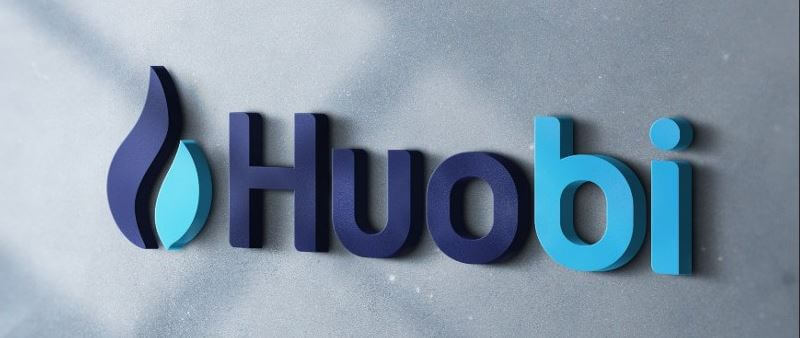
They released a decentralized Etheruem based token (Huobi HT) to power their crypto empire. A total of 500 million tokens were minted, which can be bought on the Huobi exchange and used right across the Huobi ecosystem. The initial 500 million were split into 100 million for rewards and operations, 100 million to be released at a rate of 25 million per year, and a further 300 million was given away with the purchase of Huobi “Point Cards” which were purchased to access Huobi’s infrastructure and services.
They were one of the first companies to introduce the concept of burning coins. At present, 20% of qualifying revenue is dedicated to repurchasing HT and destroying it, causing a deflationary pressure aimed at sustaining the value of the token.
It hasn’t all been plain sailing, however. 8,000 Litecoin and 920 Bitcoin were sent to the wrong addresses in 2014. (oops!) Huobi reimbursed those that lost out and since then have made security and corporate governance one of their main focuses. They have become one of the largest and most respected operators in the crypto field despite the Chinese government’s ban on ICOs and restrictions on crypto exchanges in mainland China.
According to coinmarketcap.com, the outlook is not great. They are bearish on Huobi HT, but I’m not so sure. However, it would be difficult to recommend any asset that has spiked so hard over the last 3 months.
BTMX Token
The BitMax exchange is yet another Singapore-based digital asset trading platform. They are one of the more recent organizations to enter the market and claim to offer 80 trading pairs against BTC, ETH, and USDT. However, looking at their trading platform reveals that there are 22 pairs to trade against BTC and USDT, but only one pair for ETH (LINK/ETH). They also offer leveraged trading, including margin-accelerated short pairs.
Their native utility token is BTMX, which is designed for use on their trading platform. The BitMax charts show it remained stable at around 0.15 USDT since its inception, until the beginning of February this year when it started a climb to 1.41 USDT at today’s price. With a market cap of around $1 billion, it sits just outside the top 200 coins, but as BitMax grows, so should BTMX.
You can buy crypto with fiat, and they have some of the lowest fees on the market. Currently, trading fees are around 0.2%, which is a great deal. BitMax is not available to U.S.-based customers at present, but they are in the process of expanding access to more markets around the world, so watch this space.
One service BitMax provides is copy-trading. This enables you to choose a profitable trader and piggy-back their trades for a monthly subscription fee. The idea is to benefit from another trader’s skills and knowledge, but what looks like a good option exposes a glaring problem. The practice of ‘front-running’ is rife in equity trading but is totally illegal. The scam involves brokers or market-makers placing trades ahead of client trades to take advantage of the upward/downward pressure from the incoming trading action.
This is one of the complaints leveled at Robinhood once it was known that they were selling customer trade data in real-time to their investors. Ever wondered how they can afford to offer commission-free trades? Well, this is how. As is often said, “If the product is free, then you are the product.” In the case of Robinhood, the SEC should be all over this, but crypto exchanges are subject to little or no regulation. It makes me wonder who else is selling our trading data to the institutional investors. Buyer beware!
KCS
KuCoin has impeccable timing. Founded in September 2017 at the start of the last bull market, they exploded on the scene at just the right moment. They now claim that a quarter of all crypto-holders are “with KuCoin,” and they have a comprehensive array of alt-coin pairs to trade. With average daily trading volumes of $100 million, they are certainly one of the serious players.
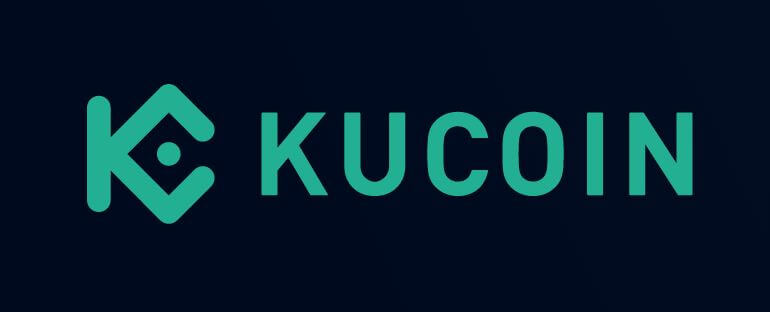
Their exchange token is known as KCS and has a market cap of around $400 million, ranking at 126 at the time of writing. With a price of around $5 for its 80 million coins in circulation, it has not seen the huge recent spike of some other exchange tokens.
They suffered a hack in September of 2020 to the tune of $281 million. Although this might not inspire confidence, they promised to make good all customers through their insurance fund. By the end of October, they had recovered around $200 million of the stolen funds, and confidence was restored in the project. It’s interesting to note that throughout this difficult period, KCS did not tank noticeably.
Other Less Known Exchange Tokens
With the recent surge in DeFi projects, we are seeing a host of associated tokens. Some notables are:
- Uniswap
- CRO (by Crypto.com)
- GateToken (by Gate.io)
- UNUS SED LEO (by Bitfinex)
- MXC exchange
- Curve
- 1inchexchange
It’s early days for these projects, so knowing which will survive the course is impossible. Uniswap, Polkadot, and Chainlink are the most talked about at the moment, but slow and steady often wins the race. Who would have thought when it was released that BNB would be where it is today?
Are Exchange Tokens a Good Investment?
It turns out that BNB, KCS, and BTMX certainly were if you bought them before February this year. However, it’s easy to look like a trading genius when the whole market is experiencing a huge upswing. Put it like this – buying these tokens at the beginning of this year would have been a fantastic trade, but as a long-term investment? That is not as clear-cut.
When you buy these exchange tokens as an investment, you are betting that the underlying platform they support continues to grow its network, and becomes one of the main players in the market. Personally, I would be cautious about buying any coin that trundled along the bottom of a chart for 3 years, then shot up 100-fold in 2 months.
Conclusion: Best Crypto Exchange Coins
Biggest is not always best, and it is difficult to predict the future in the dynamic world of cryptocurrency. As it stands, BNB is the granddaddy of the exchange tokens, but that could change. To know the answer to this question, we need to look at the exchanges with which these tokens are associated.
Which is the most innovative, the most secure, and has the most partnerships and deals in the pipeline? Which exchanges are diversifying and investing in their networks? Which of them will be leading the pack a few years from now?
I wouldn’t bet on an exchange token, but I might bet on a promising exchange or platform.



